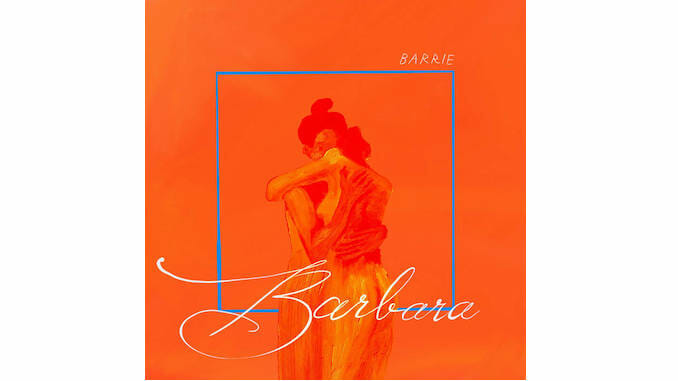Barrie Rushes Into Love and Its Challenges on Barbara

In 2019, amid cresting hype, the Brooklyn psychedelic dream-pop band Barrie released their debut album, Happy to Be Here, and then just a month later, Barrie was a solo project. Not that the group split on bad terms: Frontperson Barrie Lindsay, the band’s namesake, made a guest appearance on the 2021 album from Psymon Spine, a band that includes two former Barrie members. The problem was more that, as Lindsay said in late 2019, “we kind of all wanted different things out of [the band].”
On Barbara, her first Barrie solo album (the title of which is, fittingly, her birth name), she hits the reset button. Barrie is now a glistening, confident synth-pop act with tinges of folk, and the warm yet tentative hue that clouded Happy to Be Here is mostly gone. The shift is fitting: Lindsay’s newest songs are about gleefully growing into new love at the same time as losing a parent. Even without overtly referencing her grief, she paints a compelling picture of the joy and challenges that come from everything changing at once. With just her and her wife Gabby Smith (of Gabby’s World) behind the boards, Barrie has never sounded more intimate and alive.
Almost everything on Barbara arrives in full clarity and with full intention: Synths clatter and chirp, the volume and percussion swell halfway through songs, and Lindsay’s lyrics so vividly detail past events you can see and feel them for yourself. “Dripping blood from your foot at the quarry / Hit bottom and you stay just to scare me / Shouting naked at the rock up above you / Baby, I love you,” Lindsay sings on “Quarry” as warbly synths rush from the previously compressed arrangement like geysers. The scene is clear and detailed, and the doe-eyed music uplifts the excitement of the mundane yet profound moment you realize you’ve fallen for someone.
-

-

-

-

-

-

-

-

-

-

-

-

-

-

-

-

-

-

-

-

-

-

-

-

-

-

-

-

-

-

-

-

-

-

-

-

-

-

-

-








































